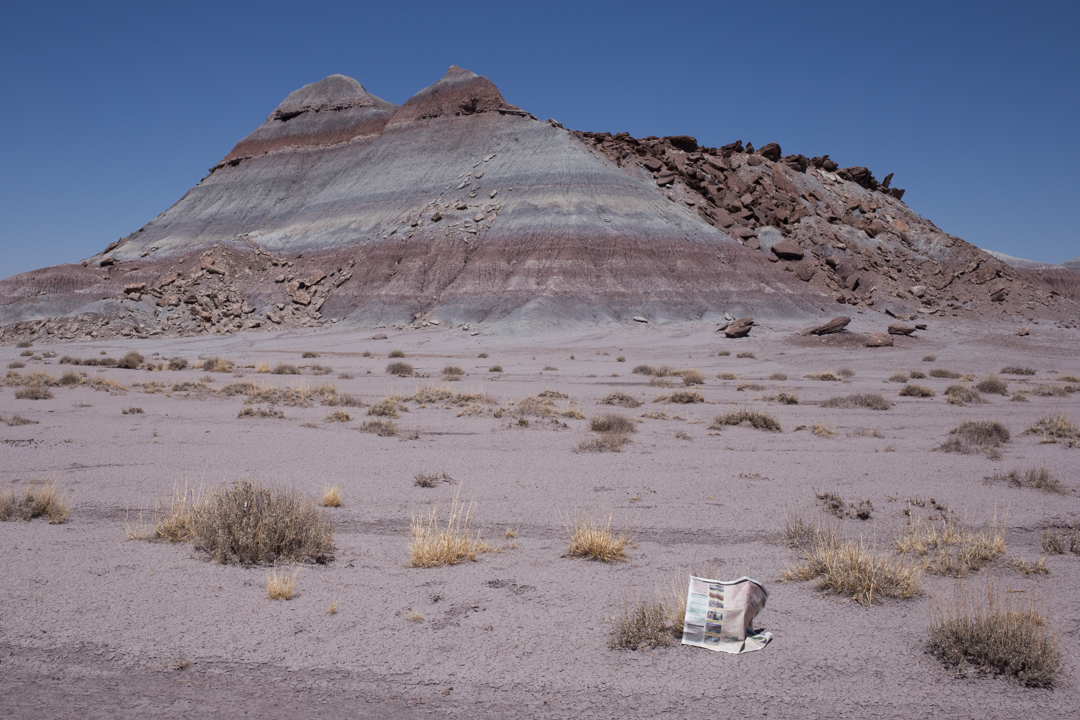Petrified Forest National Park
I am constantly blown away by the variety of landscapes that you can find without ever leaving the US, and Petrified Forest National Park is one of those places—like White Sands or Joshua Tree—that feels otherworldly. Petrified Forest National Park is located in the greater Painted Desert in northeastern Arizona. The Painted Desert accounts for about 1,500 square miles of the park’s 150,000 acres, but the main environment is short-grass prairie.
The park is so named for the large amount of petrified wood found within—fossils of fallen trees that lived 225 million years ago when the climate was humid and sub-tropical. Streams flowing across the plain carried trees and other plants and animals, most of which decayed normally.
Occasionally, organic matter is buried so quickly by sediment containing volcanic ash that it becomes fossilized when silica from the ash forms quartz crystals in place of the organic matter. Traces of iron oxide and other substances create the color variation, and millions of years later you have petrified wood—it retains the shape and texture of the original wood, but polishes to a shine like any other crystal.
Taking petrified wood from the park—even a small chip—is against federal law, but there are plenty of places nearby to buy rough or polished specimens in all shapes and sizes. I had never really seen much petrified wood until visiting Arizona but its in every trading post and souvenir shop that we stopped at along the way. I’m shocked that there is any left in the national park. There are two large shops conveniently located right outside of the park, with restrooms, snacks and some dinosaurs that have definitely seen better days.
We mostly drove through the park, stopping to get out and take photos whenever something caught our eye (which was often). There is so much more to the park than just petrified wood, including Newspaper Rock, the Agate Bridge, the teepees (not to be confused with the Wigwam, which we had stayed in the night before), the Blue Mesa and the rainbow and crystal forests. On the Giant Logs trail you’ll find just that, including “Old Faithful,” a huge log that is almost 10 feet across at its base.
I’ve never been to the Grand Canyon, but some of the sweeping views felt like we were getting close. In fact, the Painted Desert is a part of the Colorado Plateau, which includes nine National Parks—Arches, Black Canyon of the Gunnison, Bryce Canyon, Canyonlands, Capitol Reef, Grand Canyon, Mesa Verde, Petrified Forest and Zion—and 18 National Monuments.
The park is open every day of the year except Christmas, and Arizona doesn’t observe Daylight Saving Time so it’s on Mountain time all year round. It is mostly dry in the desert, of course, but I was shocked to learn that the Petrified Forest has a monsoon season and it even snows in the winter. It was bright, clear, hot and extremely windy when we went in June—so windy in fact that our map blew out of our car and I had to chase it across the plain.
Petrified Forest National Park is the only national park to once have claimed a section of Route 66, which bisected the park until it was decommissioned in 1985 (Interstate 40 took its place). The park has preserved a small grassy section of the Mother Road, marked with a rusty car and a line of small, wooden telephone poles.
Petrified Forest National Park
The park stretches north and south between Interstate 40 and Highway 180.
There are two entrances into the park.








































